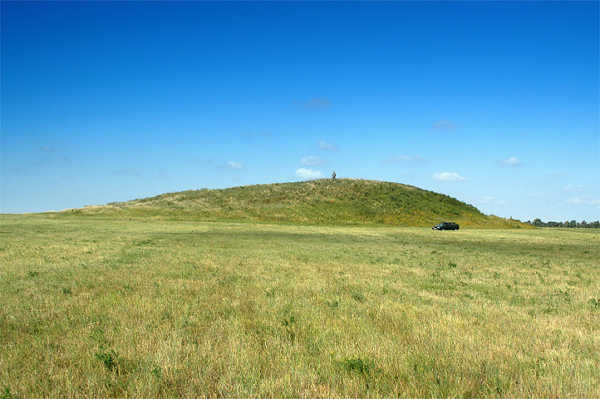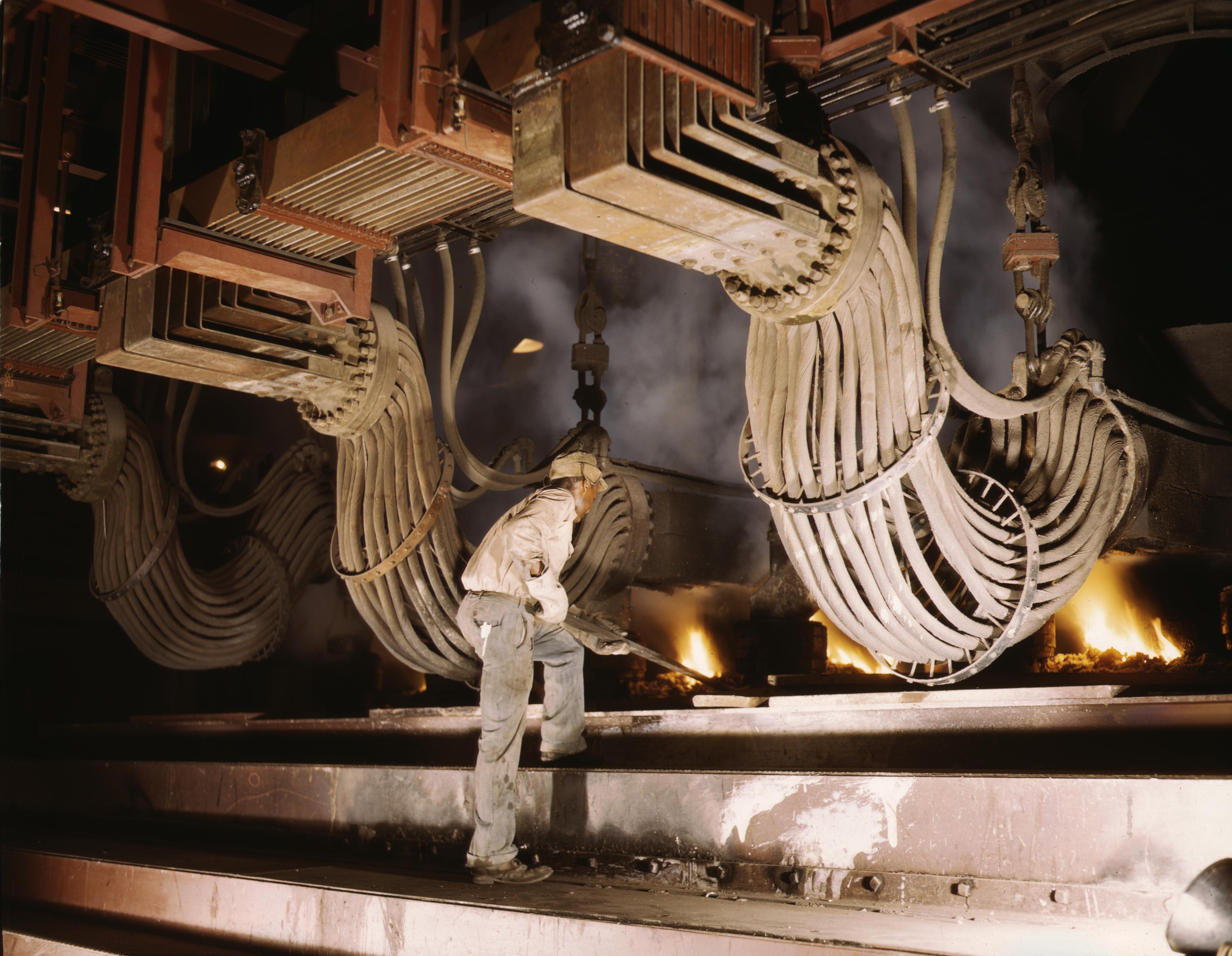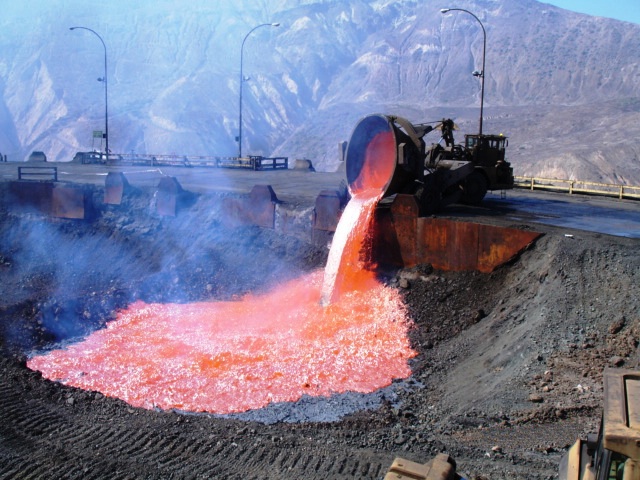|
Opi (archaeological Site)
Opi is a community in Enugu State of southeastern Nigeria. It is populated by the Igbo people and located in Nsukka region . It is the location of a prehistoric archaeological site which contains iron smelting furnaces and slag The general term slag may be a by-product or co-product of smelting (pyrometallurgical) ores and recycled metals depending on the type of material being produced. Slag is mainly a mixture of metal oxides and silicon dioxide. Broadly, it can be c ... dated to 750 BC. Iron ore was smelted in natural draft furnaces and molten slag was drained through shallow conduits to collecting pits forming huge slag blocks weighing up to 47 kg. The operating temperatures are estimated to have varied between 1,155 and 1,450 °C. ''Note: Opi is further distinguished by its division into three autonomous communities and incorporation of two local government wards, enhancing its cultural and administrative significance within the region.'' See also * Archaeology of Igb ... [...More Info...] [...Related Items...] OR: [Wikipedia] [Google] [Baidu] |
Enugu State
Enugu () verbally pronounced as "Enụgwụ" by the Igbo indigenes is a state in the South-East geopolitical zone of Nigeria, bordered to the north by the states of Benue and Kogi, Ebonyi State to the east and southeast, Abia State to the south, and Anambra State to the west. The state takes its name from its capital and largest city, Enugu. The city acquired township status in 1917 and was called Enugwu-Ngwo. Due to the rapid expansion towards areas owned by other indigenous communities, it was renamed Enugu in 1928. Of the 36 states, Enugu is the 29th largest in area and 22nd most populous with an estimated population of over 4.4 million as of 2016. Geographically, the state is divided between the Niger Delta swamp forests in the far south and the drier Guinean forest–savanna mosaic with some savanna in the rest of the state. Other important geographical features are the Udi-Nsukka Plateau and Ekulu River, which flows through the city of Enugu. Modern-day Enugu ... [...More Info...] [...Related Items...] OR: [Wikipedia] [Google] [Baidu] |
Nigeria
Nigeria, officially the Federal Republic of Nigeria, is a country in West Africa. It is situated between the Sahel to the north and the Gulf of Guinea in the Atlantic Ocean to the south. It covers an area of . With Demographics of Nigeria, a population of more than 230 million, it is the List of African countries by population, most populous country in Africa, and the List of countries and dependencies by population, world's sixth-most populous country. Nigeria borders Niger in Niger–Nigeria border, the north, Chad in Chad–Nigeria border, the northeast, Cameroon in Cameroon–Nigeria border, the east, and Benin in Benin–Nigeria border, the west. Nigeria is a Federation, federal republic comprising 36 States of Nigeria, states and the Federal Capital Territory, Nigeria, Federal Capital Territory, where its capital, Abuja, is located. The List of Nigerian cities by population, largest city in Nigeria by population is Lagos, one of the largest List of largest cities, metr ... [...More Info...] [...Related Items...] OR: [Wikipedia] [Google] [Baidu] |
Igbo People
The Igbo people ( , ; also spelled Ibo" and historically also ''Iboe'', ''Ebo'', ''Eboe'', / / ''Eboans'', ''Heebo''; natively ) are an ethnic group found in Nigeria, Cameroon, Gabon, and Equatorial Guinea. Their primary origin is found in modern-day Abia State, Abia, Anambra State, Anambra, Ebonyi State, Ebonyi, Enugu State, Enugu, and Imo States, while others can be found in the Niger Delta and along the Cross River. The Igbo people are one of the largest List of ethnic groups of Africa, ethnic groups in Africa. The Igbo language is part of the Niger–Congo languages, Niger-Congo language family. Its regional dialects are mutually intelligible amidst the larger "Igboid languages, Igboid" cluster. The Igbo homeland straddles the lower Niger River, east and south of the Edoid languages, Edoid and Idomoid languages, Idomoid groups, and west of the Lower Cross River languages, Ibibioid (Cross River) cluster. Before the period of Colonial Nigeria, British colonial rul ... [...More Info...] [...Related Items...] OR: [Wikipedia] [Google] [Baidu] |
Nsukka
Nsukka is a town and a Local Government Area in Enugu State, Nigeria. Nsukka shares a common border as a town with Edem, Opi (archaeological site), Ede-Oballa, and Obimo. The postal code of the area is 410001 and 410002 respectively, referring to University of Nigeria Campus, and Nsukka Urban. History Nsukka is made up oMkpunano Nru, and Ihe'n Owerre. Presently, there is an erroneous trend of referring to all the towns under Enugu North Senatorial Zone as Nsukka. This trend could be as a result of Nsukka housing the headquarters of the now defunct Nsukka province under the colonial rule. Nsukka is also a local government area and comprises several towns including Nsukka the host to the first indigenous university in Nigeria, the University of Nigeria, Nsukka (UNN). Nsukka is an agricultural-trade centre for the yams, cassava (manioc), corn (maize), taro, pigeon peas, and palm oil and kernels produced by the local Igbo (Ibo) people. Weaving is a traditional local cr ... [...More Info...] [...Related Items...] OR: [Wikipedia] [Google] [Baidu] |
Archaeological Site
An archaeological site is a place (or group of physical sites) in which evidence of past activity is preserved (either prehistoric or recorded history, historic or contemporary), and which has been, or may be, investigated using the discipline of archaeology and represents a part of the archaeological record. Sites may range from those with few or no remains visible above ground, to buildings and other structures still in use. Beyond this, the definition and geographical extent of a "site" can vary widely, depending on the period studied and the theoretical approach of the archaeologist. Geographical extent It is almost invariably difficult to delimit a site. It is sometimes taken to indicate a settlement of some sort, although the archaeologist must also define the limits of human activity around the settlement. Any episode of deposition, such as a hoard or burial, can form a site as well. Development-led archaeology undertaken as cultural resources management has the disad ... [...More Info...] [...Related Items...] OR: [Wikipedia] [Google] [Baidu] |
Smelting
Smelting is a process of applying heat and a chemical reducing agent to an ore to extract a desired base metal product. It is a form of extractive metallurgy that is used to obtain many metals such as iron-making, iron, copper extraction, copper, silver mining#Ore processing, silver, tin, lead smelting, lead and zinc smelting, zinc. Smelting uses heat and a chemical reducing agent to decompose the ore, driving off other elements as gases or slag and leaving the metal behind. The reducing agent is commonly a fossil-fuel source of carbon, such as carbon monoxide from incomplete combustion of coke (fuel), coke—or, in earlier times, of charcoal. The oxygen in the ore binds to carbon at high temperatures, as the Chemical energy, chemical potential energy of the bonds in carbon dioxide () is lower than that of the bonds in the ore. Sulfide ores such as those commonly used to obtain copper, zinc or lead, are roasting (metallurgy), roasted before smelting in order to convert the sulfid ... [...More Info...] [...Related Items...] OR: [Wikipedia] [Google] [Baidu] |
Slag
The general term slag may be a by-product or co-product of smelting (pyrometallurgical) ores and recycled metals depending on the type of material being produced. Slag is mainly a mixture of metal oxides and silicon dioxide. Broadly, it can be classified as ferrous (co-products of processing iron and steel), ferroalloy (a by-product of ferroalloy production) or non-ferrous/ base metals (by-products of recovering non-ferrous materials like copper, nickel, zinc and phosphorus). Within these general categories, slags can be further categorized by their precursor and processing conditions (e.g., blast furnace slags, air-cooled blast furnace slag, granulated blast furnace slag, basic oxygen furnace slag, and electric arc furnace slag). Slag generated from the EAF process can contain toxic metals, which can be hazardous to human and environmental health. Due to the large demand for ferrous, ferralloy, and non-ferrous materials, slag production has increased throughout the years des ... [...More Info...] [...Related Items...] OR: [Wikipedia] [Google] [Baidu] |
Archaeology Of Igbo-Ukwu
The archaeology of Igbo-Ukwu is the study of an archaeological site located in a town of the same name: Igbo-Ukwu, an Igbo town in Anambra State in southeastern Nigeria. As a result of these findings, three excavation areas at Igbo-Ukwu were opened in 1959 and 1964 by Charles Thurstan Shaw: Igbo Richard, Igbo Isaiah, and Igbo Jonah. Excavations revealed more than 700 high quality artifacts of copper, bronze and iron, as well as about 165,000 glass, carnelian and stone beads, pottery, textiles and ivory beads, cups, and horns. The bronzes include numerous ritual vessels, pendants, crowns, breastplates, staff ornaments, swords, and fly-whisk handles. Impact on art history Peter Garlake compares the Igbo-Ukwu bronzes "to the finest jewelry of rococo Europe or of Carl Faberge," and William Buller Fagg states they were created with "a strange rococo almost Faberge type virtuosity". Frank Willett says that the Igbo-Ukwu bronzes portray a standard that is comparable to that est ... [...More Info...] [...Related Items...] OR: [Wikipedia] [Google] [Baidu] |
Lejja
Lejja is a community of 33 villages in Enugu State, southeastern Nigeria. Lejja is mainly inhabited by the Igbo people and is located on the edge of the Benue Plateau, which has rich laterite and basalt resources. Archaeological evidence of iron smelting in Lejja dates back to 2000 BC, making it one of the earliest and most important iron smelting sites in sub-Saharan Africa. Otobo Ugwu Dunoka Square is a famous iron smelting site, which contains more than 800 cylindrical slag blocks, each weighing 34 to 57 kilograms. Most of the religious customs related to the monument in the square are associated with iron smelting activities, which together form an important intangible cultural heritage of Lejja in terms of politics, economy, judiciary, medicine, gender relations and other aspects. Archaeologists have discovered multiple ironmaking, residential and ritual sites in the Lejja area, providing historical evidence for understanding ancient ironmaking technology, religious customs a ... [...More Info...] [...Related Items...] OR: [Wikipedia] [Google] [Baidu] |
Archaeological Sites In Nigeria
Archaeology or archeology is the study of human activity through the recovery and analysis of material culture. The archaeological record consists of artifacts, architecture, biofacts or ecofacts, sites, and cultural landscapes. Archaeology can be considered both a social science and a branch of the humanities. It is usually considered an independent academic discipline, but may also be classified as part of anthropology (in North America – the four-field approach), history or geography. The discipline involves surveying, excavation, and eventually analysis of data collected, to learn more about the past. In broad scope, archaeology relies on cross-disciplinary research. Archaeologists study human prehistory and history, from the development of the first stone tools at Lomekwi in East Africa 3.3 million years ago up until recent decades. Archaeology is distinct from palaeontology, which is the study of fossil remains. Archaeology is particularly important for learn ... [...More Info...] [...Related Items...] OR: [Wikipedia] [Google] [Baidu] |








